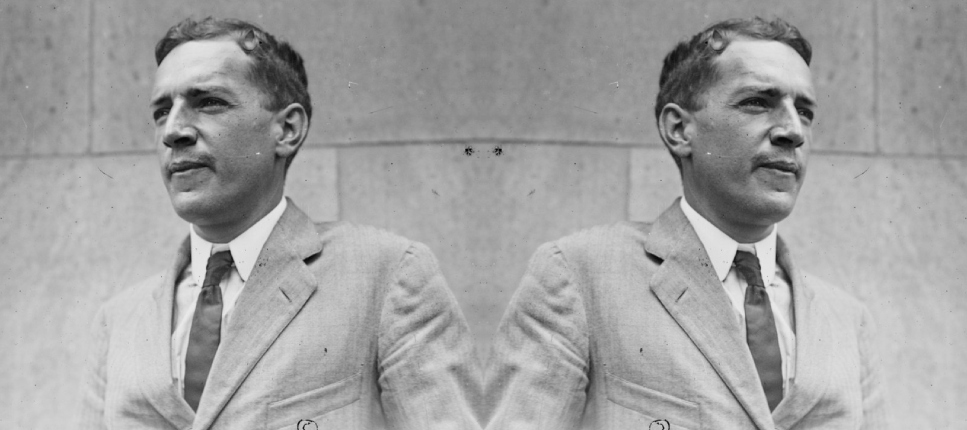Lit Hub Weekly: November 20-22, 2023
THE BEST OF THE LITERARY INTERNET

-
“You were great, Francis, but I hold the mantle now.” On the jealous rivalry between Nicolas Cage and his uncle, Francis Ford Coppola. | Lit Hub Film & TV
-
John Vaillant, winner of the Baillie Gifford Prize for Fire Weather, discusses our climate future. | Lit Hub Climate Change
-
Colson Whitehead’s oeuvre chronicles nearly 200 years of American history. So can we call it “historical fiction”? | Lit Hub Criticism
-
“To visit Vonnegut’s grave in Indianapolis is far harder than it is to visit Thurber’s in Columbus for one simple reason: he’s not there.” Visiting the city where Kurt Vonnegut lived (but was not laid to rest). | Lit Hub
-
More than 1,700 Canadian writers are asking the Giller Prize to drop charges against protestors. | The Hub
-
12 new mysteries and thrillers in translation. | CrimeReads
-
“Gaza is bleeding away.” Excerpts from the diary of Atef Abu Saif since October 7th. | The Nation
-
Why is Gen Z so obsessed with Fran Lebowitz? | Cultured
-
“Like science fiction, historical fiction can speak to the present moment without necessarily responding to the most recent news headline or Twitter feud.” Sam Paul on the mainstreaming of historical fiction. | Esquire
-
Anahid Nersessian considers William Blake’s “uncannily contemporary” Laocöon. | The Yale Review
-
Behind the scenes of the Milwaukee Public Library’s “wholesome, unhinged” TikToks. | The Washington Post
-
“I’d like to possess Roth in ways I’d hope to see more of his readers do as well: to take what creative, licentious force I need, and identify the Lear-ian corners in my own brain.” Hannah Gold on Philip Roth and literary legacies. | Harper’s
-
A Tale of One January, the last novel by blacklisted communist writer Albert Maltz, will be published in the US for the first time. | Jacobin
-
“The problem with writing novels, Oates observed, is that one must finish them. ‘It’s that husk-like state I dread,’ she wrote.” Rachel Aviv profiles Joyce Carol Oates. | The New Yorker
-
Ayana Mathis explores how writers have grappled with the presence of “sensational evils” in the world. | New York Times
-
Andrew Hopf, a “Fran Fine-level Barbra fan,” created an index to her 966-page memoir. | Interview Magazine
-
“If I let these people down, who is going to speak out for them? Who’s going to tell the world their stories?” Al Jazeera’s Youmna El Sayed on what it’s like to report from Gaza. | The Nation
-
Chloé Cooper Jones profiles Lana Del Rey. | Harper’s Bazaar
-
Anne Lamott considers the beauty in not knowing. | The Washington Post
-
“[I]n the opinion of teen-age me there is only one real event in our lives and it occurred on the sixteenth of April, 1993, when I fell thirty feet from my bedroom window.” Zadie Smith tells the story of a fall. | The New Yorker
-
“All of these examples are fake, but can stand for the ones I made, the bedbugs I released into the linguistic furniture. It was my first attempt at writing fiction.” Ben Lerner on some edits he made to Wikipedia. | Harper’s
Also on Lit Hub:
Read new poetry by Fady Joudah • On the psychedelic life and art of David Edward Byrd • Theodore Wheeler on connecting with his young daughters through The Great Comet, a musical adaptation of Tolstoy’s War and Peace • Laurie Hertzel on the danger of banning books for children • What we can learn from failed Dutch painters • Paul Morton revisits Rosebud Yellow Robe’s 1950 Hollywood PR tour, and its echoes with the publicity campaign for Killer of the Flower Moon • How Dungeons & Dragons helps build empathy • Fuchsia Dunlop on the marvels of Chinese cuisine • Newsflash: Cities don’t need to be green • Mark Haber in praise of the Texas-based lit mag Southwest Review • A mutiny, a court martial, and the teenage pirate-hopefuls who changed the US Navy • Naomi Alderman on creating a fictional tech dystopia • One night at Mable Peabody’s, the “queer heart of Texas” • Maestro might be more about Bradley Cooper than it is about Leonard Bernstein • Karen Tongson on Gilmore Girls as “normporn” • How to process grief and loss through storytelling



















